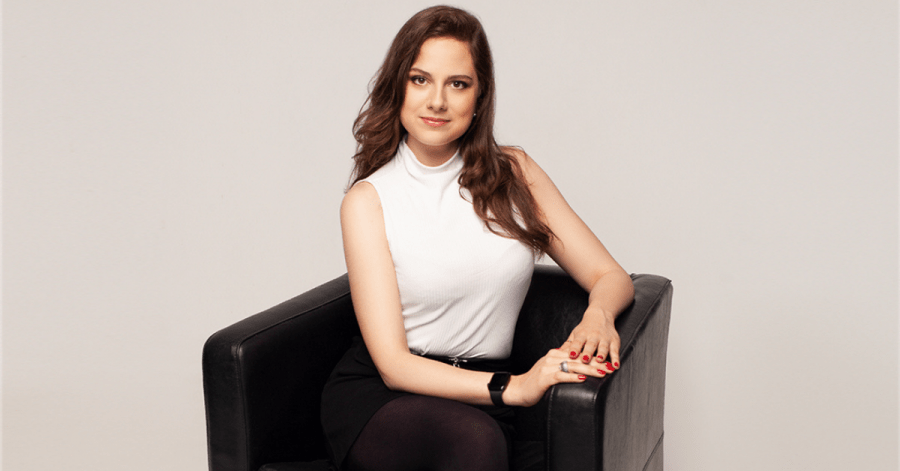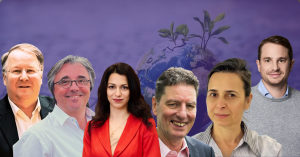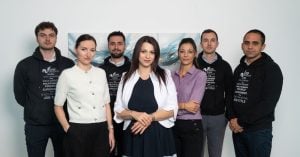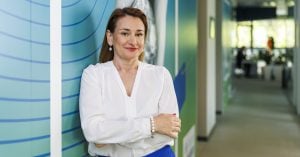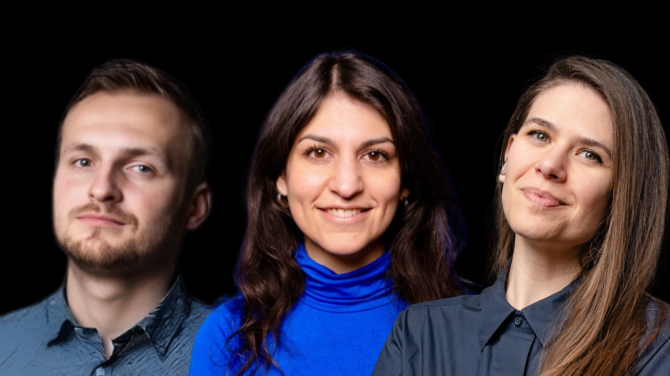We are seeing more and more efforts in the fashion and textile industries towards improving the overall societal footprint of this sector. This is a consequence of years of headlines pointing to examples of unsafe labour practices, poor wages and exploitation of workers, as well as excessive production and consumption of clothes, intensive use of scarce resources, and pollution at different steps in the process. Whether driven by an inner mission or social pressure, businesses have brought forward sustainable fashion business models and solutions.
In this series, The Recursive discusses the different aspects of sustainable fashion and talks to fashion startups in the SEE to understand both their solutions and the bears on the road.
Today, we talk to Maria Sas, founder at Sustainibli, a Romanian startup that wants to educate and connect users, brands, clothing manufacturers, and textile producers around sustainable fashion goals through an interactive online platform with multiple services. One key issue challenging the fashion industry is the lack of transparency and communication in the value chain between the different stakeholders. And the fashion industry has one of the longest value chains, with numerous actors, often separated by large distances, economic realities, and cultural differences. Sustainibli aims to make a difference by encouraging players to communicate, solve problems together, and collaborate on sustainable fashion initiatives.
The platform has not fully launched yet, but they have already been noticed in the regional ecosystem. They have been finalists in the Commons Accel program and are now participating in the Future Makers accelerator.
Also in the series, read about REDU, the social enterprise creating unique clothes from deadstock in Romania, and blonde gone rogue, the B-Corp focused on embracing sustainability at every step in the value chain.
The Recursive: Where do sustainability and fashion design meet for you?
Maria Sas: I’ve studied and worked in fashion design, as well as in international sales and stock management and acquisitions of textiles. So these different insights into how the fashion industry works permitted me to have this 360 view. Design is very tied up in production. If you think of it as a business design is about how you find the right garment and translate it into a product that can be sold. And in doing so you have to understand garment construction and textiles, and the different options available.
During my experiences, I started how the system works. I worked as a brand manager in a luxury multibrand showroom, focusing on the relation between production and sales. I got to understand what stores are looking for. And even on a luxury level, things aren’t how they used to be. You see brands leaning more towards fast fashion, due to pressure on budgets and on sales. After this experience, I wanted to go back to my roots in fashion design. I returned to Romania and started working in design and acquisitions at Rhea Costa. This is how I started working with textile producers, centralizing stock and understanding the different categories within textile production.
And in this journey, I started also focusing on sustainable fashion. Together with Andreea Constantin from Rhea Costa, we were working on Amorhea which at the time was supposed to become a sustainable secondary line for the brand. Later on, in 2019, I pursued an online course at The University of Cambridge on Business Sustainability Management. After this period of academia, research and talking to peers at university, I started thinking about Sustainibli.
How did this lead to starting Sustainibli?
Sustainibli is a subscription-based B2B web platform, focused on brands, clothing producers, and textile manufacturers. Companies are at different points in the sustainability journey. Our targets are small and medium companies that want to incorporate more sustainability practices within their business.
To that end, we offer different tools. First, we have a newsfeed with proprietary articles, linked to verified sources. We’re going to launch a podcast next month. Then, we have a database that will also be a marketplace in the future. Here is where designers will be able to look for alternative options, as well as communicate with textile producers directly on the platform.
The third functionality of the platform is building a community. And that’s the most important because we want to put a focus on co-creation, communication, and collaboration. It will be a dynamic forum where companies can collaborate through partnerships that we will propose, reach out if they need something, and discuss solutions freely.
The cherry on top is the React area, a whiteboard area, where all the information you have saved from other places can be saved and displayed in a friendly manner. So, all your bookmarks from the newsfeed, the database, and community discussions will appear on the whiteboard. Here, you can drag and drop valuable information that will help you remember and use it afterwards.
Our slogan is experience change. You have to experience it. The platform needs to be dynamic, fun, and easy to use so that the user experience is very smooth and simple. That’s why we are also targeting students within fashion universities. We want to create an ecosystem that is focused on the younger generations who will shape the industry while integrating small to medium businesses.
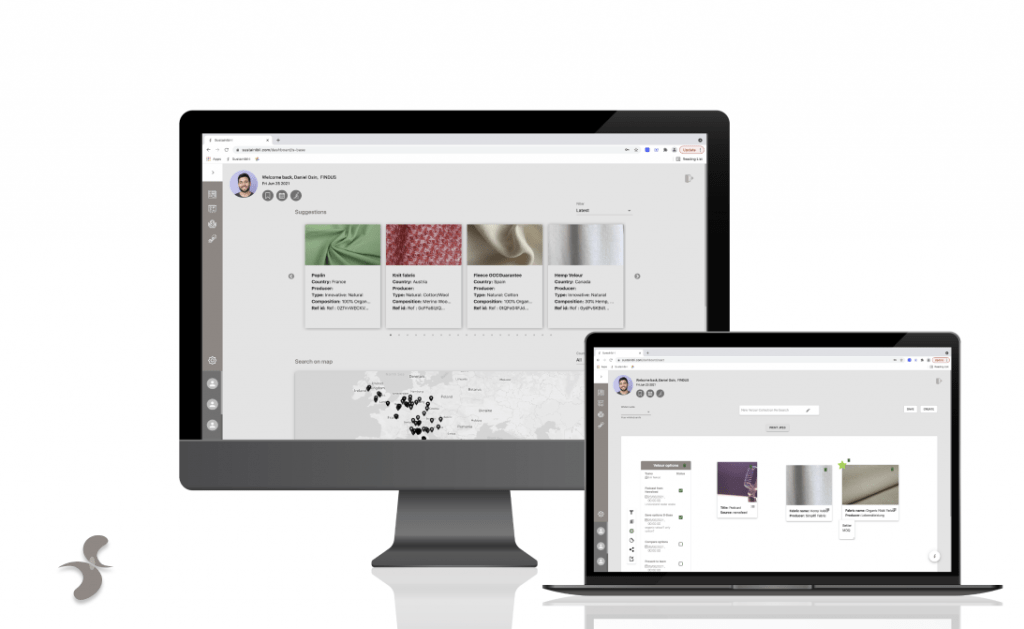
How do you plan to build this community?
We’re currently working on different partnerships within the community. We are excited to be partnering with the Circular Fashion Summit. It is not just a summit – their efforts in positioning and promoting sustainable fashion within the industry are huge. They organise a lot of activities and they have a lot of different products, such as artificial intelligence applied to the fashion industry’s needs.
We also already have some companies on board. One channel where we will focus our efforts to attract new companies on board will be the podcast. We will be talking about and involving different brands and textile producers that are making sustainability efforts. We will not have a specific type of interviewees. Our aim is to have a holistic group of people to discuss these issues from different perspectives. So, we are going to have freelancers and companies that are working within the textile industry to revolutionize it, through for instance biotechnology and biochemistry.
For the content creation part – what goes to the newsfeed – we will also have collaborators, whom we will promote. So, I think it’s also going to grow organically through these different collaborations.
Tell us a bit more about the business model.
So, the business model involves a subscription to the platform. We have two different types of subscriptions: one is for professionals and one is for students with a reduced rate. We’re currently working out the pricing. The second part is the marketplace, for which textile producers would pay a fee. The rates will vary based on various factors, such as the number of items they have and the system they want to integrate into bidding.
For brands, we are going to focus on Central Europe and the UK, but for textile producers, we don’t have a parameter. We want to have a variety.
How are you engaging the ecosystem around you into supporting the platform?
So we just finished Commons Accel, we were part of the finalists. And that was a really great experience. We have just now been invited to Future Makers to participate. We are currently talking with multiple investors, but it’s a process. We are definitely looking for backing because it’s a platform oriented towards the external market. So, in order to have higher engagement, we are going to need an additional budget for content creation and marketing. So far, I have financed it with my own money. I have all the skin in the game.
However, I’m super blessed with meeting some amazing people, and we’re now forming a team. We are a team of three and we will be joined by someone with 10 years of experience in marketing. We also have different advisors. We have Emilia Bratu, who is the director of marketing at Qualitance, Rozanne Henzen, who is a researcher in sustainability in Belgium and has written a book about circular fashion, and Daniela Aldescu, partner and co-founder of Smart Impact Capital, as a business strategist advisor.
What advice would you give entrepreneurs in emerging fields in the region?
In my experience so far, I’ve noted that it’s very important to be adaptable, flexible, and open-minded. When you start your journey, you have to understand that things will change. But you have to embrace that change and see the bigger picture.
Further, if you don’t believe in your idea and your startup then who else will? I think it’s important to understand that there’s a bigger vision, you’re doing something for your customers. And that’s why you have to be adaptable. You need to jump on the bandwagon and be open to improve along the way. That’s where the magic happens. Avoid getting caught in only on one type of solution – be focused on how you bring the solution to life and make it relevant.

